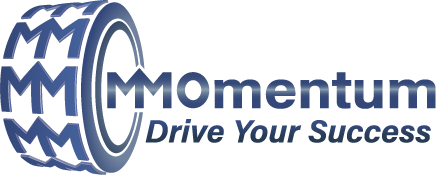Introduction:

This list is for any aspiring manager or experienced executive interested in finding a leadership coach. The coaching relationship can positively impact your personal growth, leadership effectiveness, and organizational success or can create frustration, reduce your sense of commitment, and delay achieving your goals. That is why choosing a professional/leadership coach is a personal decision with profound implications. This list will guide your choice and yield the best results.
The Five Considerations:
- Understand the coach’s role and your role in the relationship.
- HBR defines professional (leadership) coaching nicely: Professional “coaching is different from sports coaching. Sports coaches instruct, direct, strategize, and drive their athletes to win. In many ways, the sports coach is in the driver’s seat, with the team as passengers. In executive coaching, the coach sits in the passenger seat, with the client driving. The coach brings the process, but the coaching goes where the client takes it and explores what the client wants to explore.”
- A coach adhering to the International Coaching Federation (ICF) guidelines facilitates self-discovery and client-driven decision-making through active listening and questioning. This type of coaching can yield excellent results with clients who come prepared with specific pre-set goals and understand the true nature of the obstacles standing in their way. A coach who knows when to augment the coaching relationship with personal experience or best practices can be more directive in their approach. This type of style is helpful for clients who may encounter blind spots (see Johari window) or who prefer a more direct path toward their goals.
- Though a coach (as mentioned above) can provide respectful guidance when a client faces a blind spot, they are not advisors. A coach’s ultimate value and expertise is in facilitating your development; that is what they are trained to do. They do not need to have direct experience in your field or position to help you achieve growth and success. A coach’s open and curious mind is far more critical.
- Coaching is most effective when you can identify a clear and undeniable return on investment (RoI) that justifies the cost of the coach’s services and the time and effort you will need to dedicate to the process. A typical calculation should yield a minimum of an 8x RoI.
- A common mistake is thinking of your return as purely and directly financial. For example, an executive working 18-hour days, 6 days a week may desire to spend more time with family or increase sleep to be more focused at work. You must define RoI on your terms so the coach can help you achieve those goals based on your metrics.
- Coaching is not a quick fix. The coaching process demands a commitment on your part to be present, engaged, and emotionally open throughout the engagement. A great coach will not allow you to turn away from uncomfortable truths or firmly held perspectives that prevent you from achieving your stated desired goals. Furthermore, realize that you are responsible for your actions and the development of ideas, insights, and strategies that work best for you. Doing so helps ensure you are accountable for your actions, behaviors, and commitments.
- Though engagements can be as short as 3 months, the most profound results and fully integrated changes in one’s leadership abilities typically require a 6 to 9-month engagement. Regardless, the first 1/3 of an engagement will typically comprise of weekly sessions, and the other 2/3 will take place every two weeks or monthly as you require. Ultimately, you and the coach will determine the schedule.
- Evaluate the leadership coach’s experience and track record.
- Industry-specific experience helps establish a baseline of understanding but may not be necessary to achieve your goals.
- A coach with broad experience in different disciplines, markets, and leadership roles can bring fresh perspectives and valuable insights.
- A track record of working with organizations of similar size and complexity can help accelerate results.
- A coach who has overcome seemingly insurmountable challenges or adversity can help you weather any storm.
- An outside coach (one that does not work in your company) works for your success. They do not work for you. The client and the coach are peers and must perceive each other as such. Any negative power dynamic between the two parties will result in an unsatisfactory experience and delay the achievement of goals.
- Ensure the coach has credible coaching certifications from recognized and respected organizations (e.g., International Coaching Federation, Center for Executive Coaching, or any other well-regarded programs) and, ideally, additional education in fields relevant to your goals or their ability to coach. However, a leadership coach with a strong record of success practiced over many years may not need a certification to validate their abilities.
- Check your personal chemistry with the coach during the initial meetings.
- The coach should give you a sense of comfort and quiet confidence in their ability to understand you and your challenges while maintaining a neutral and nonjudgmental professional attitude. Part of the chemistry is evaluating how well the coach listens and adapts to your needs and requirements. During your initial meetings, evaluate whether they are actively listening to you or simply waiting to respond.
- Coaching in the presence of a power dynamic between the coach and client will likely yield poor results since the relationship should be one of mutual respect, trust, and equality. Ensure you can establish the right relationship with your prospective coach.
- An effective leadership coach should focus on measurable outcomes and help you set clear goals for each session and the entire coaching engagement. However, they will also be flexible and realize that there are times when the most effective outcome for the client is for them to listen and support you, or even recommend delaying the session until a later time.
- The best coach is always the one who has the right style and experience for you, and will help you achieve or exceed your desired results. The coach that was perfect for your peer or colleague, or may have achieved greater success than you in a similar position may not be the right coach for you.
- The coach should give you a sense of comfort and quiet confidence in their ability to understand you and your challenges while maintaining a neutral and nonjudgmental professional attitude. Part of the chemistry is evaluating how well the coach listens and adapts to your needs and requirements. During your initial meetings, evaluate whether they are actively listening to you or simply waiting to respond.
- Explore the coach’s curiosity and thirst for knowledge.
- Great coaches are lifelong learners, constantly updating their knowledge and skills. They should be knowledgeable about leadership theory, business trends, and psychological research.
- A great coach is naturally curious, not nosy. They rarely require details about why something is or ask for unnecessary specifics. They are more interested in asking questions revealing your hidden truths and removing obstacles on your path forward.
Selecting the right leadership coach involves carefully evaluating these and other factors, along with your personal objectives for coaching. It’s often worth meeting with several coaches to compare how each aligns with these considerations before making your final choice. An unknown but masterful coach with whom you share great chemistry will achieve better (as in profound and long-lasting) results than the industry-recognized name brand with whom you share little chemistry.
This process ensures you find a leadership coach who can effectively support your development goals and lays the groundwork for a successful coaching relationship. All information about my background, style, and perspectives can be found at Why MMOmentum.
